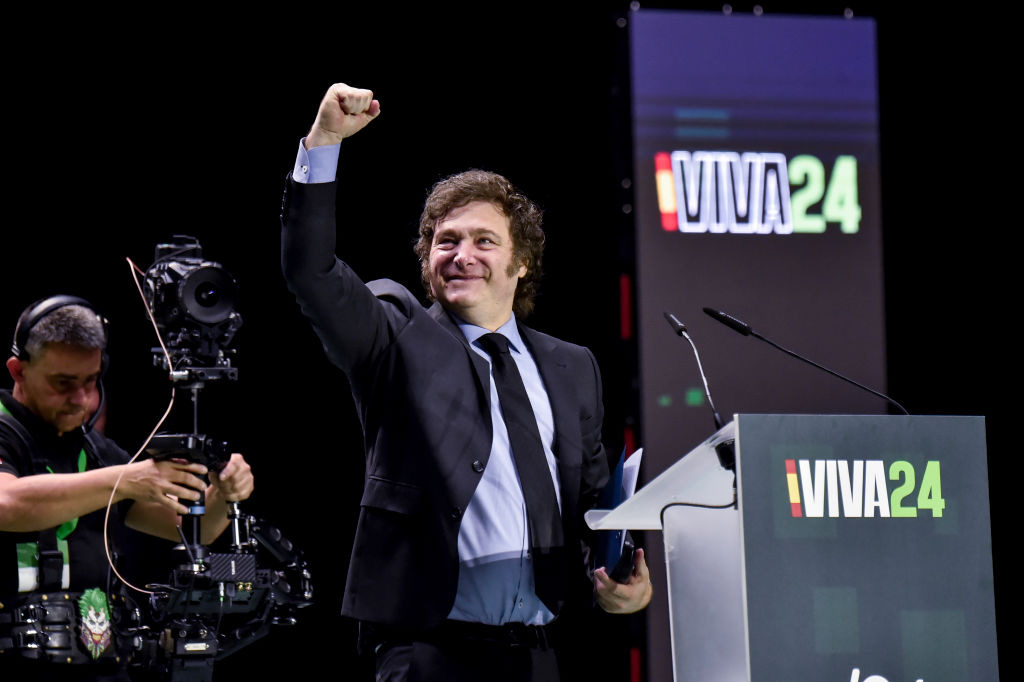Apart at the Seams
Will green energy myopia be the undoing of the European Union?
“How wonderful that we have met with a paradox. Now we have some hope of making progress.” – Niels Bohr
A notable gathering of international political leaders occurred over the weekend at the Europa Viva 24 conference in Madrid, Spain. Coming just weeks before the European parliamentary elections—an event that has Brussels pre-emptively blaming Russian interference for the anticipated results—the gathering had the character of a typical high-stakes political rally. Fiery political speeches were made, rowdy ovations were given, and talk of a better future created excitement among the crowd. In other words, the standard trappings of the democratic process, working as it is meant to. Publications like The Guardian were not amused (emphasis added throughout):
“International far-right leaders, including France’s Marine Le Pen, Hungary’s Viktor Orbán, Italy’s Giorgia Meloni and Argentina’s Javier Milei, came together in Madrid to rail against socialism and ‘massive illegal migration’ three weeks before hard-right parties are expected to see a surge in support in June’s European elections.
Sunday’s ‘great patriotic convention,’ which was organised by Spain’s far-right Vox party, offered conservatives and far-right populists a chance to congregate and take aim at a variety of familiar targets, from the welfare state to ‘wokeness’ and the agendas of Brussels-based bureaucrats.”
Never one to avoid a fight, Milei triggered an international row when he first refused to meet with the King of Spain and then called Spanish Prime Minister Pedro Sanchez's wife “corrupt” during his speech. Sanchez, a member of the country’s ruling Socialist Party, reacted by recalling Spain’s ambassador to Argentina and demanding an apology. Given Milei’s views on socialism, we doubt one will be forthcoming.
All of this is occurring in the shadow of the shocking attempted assassination of Slovakia’s prime minister, Robert Fico, a populist leader considered too friendly to Russia by the European elite. This aggression was the first attempt on the life of a European head of state in two decades.
Objectively, Europe is a political powder keg.
How did it come to this? While it might be comforting to propagate the interpretation with tiresome “left/right” name-calling, we believe there is a deeper, underreported tension that puts the European Union (EU) at risk of disintegrating: the so-called green energy agenda is fundamentally incompatible with democracy. There is no denying that a shift away from fossil fuels and nuclear energy necessitates deep cuts in standards of living, lower standards of living are unpopular, and democratic elections are popularity contests. Unable to achieve popular support for proactive energy martyrdom, the ruling class turns to force, which only drives down their popularity further.
Arising from this set of circumstances is populism—it’s right there in the name, after all—and no amount of data massaging, propagandizing, and mud-slinging can break the link between physics and economics. The sooner Europe gets its energy policy right, the quicker it can stabilize its various political crises.
Given the choice between democracy and the green energy agenda, which will Brussels choose? How far will European politics disintegrate before the reckoning is made? Will the EU survive, or will it splinter into states that listen to their people and those that do not? Let’s look at the most recent bursts of pressure.



